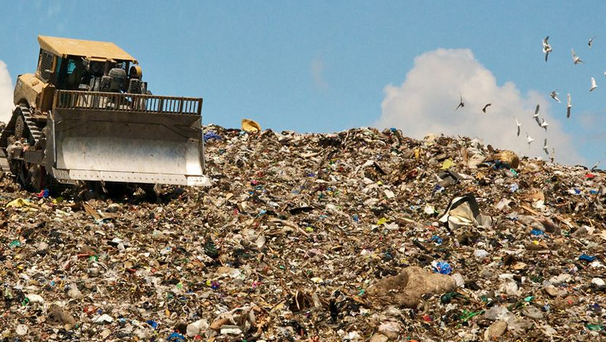A refuse dump
In the last three weeks, I have attended five workshops and stakeholder events around power generation in Nigeria. Unfortunately, none have discussed the potential for energy recovery from waste in Nigeria.
My article titled ‘Poor Waste Management as Nigeria’s Bane to Achieving Sustainable Development Goals (SDGs)’ published last year highlighted how poor waste management could impede Nigeria’s achievement of goals 3, 7, 11 and 13 owing to growing amount of waste that ends up in poorly managed dump sites.
Global estimates indicate that about 70% of solid waste generated is disposed in dump sites and landfills with 19% recovered through recycling or composting and the remaining 11% converted to energy using different energy recovery technologies.
In Nigeria, over 90% of non-metallic solid waste collected ends up in unsanitary dump site. As frequent as possible, these dumpsites are set on fire to reduce the volume of waste; disrupting ambient air quality and releasing dioxins, furan, VOCs, PCBs etc. and heavy metals like mercury and lead. These pollutants have long-term health consequences including cancer; liver problems and impairment of the immune system. In addition, the biodegradable fraction of waste forms leachate which seeps into and contaminates ground water.
Advertisement
Furthermore, data shows that the disposal of large amounts of waste in landfills and dump sites accounts for about 5 per cent of total global greenhouse gas (GHG) emissions and 12 per cent of the world’s methane (CH4) emissions; a GHG that is 23 times more potent than carbon dioxide (CO2).
Thus, with waste generation projected to increase with growing population and changing consumption patterns in Nigeria, current poor waste management practices can only translate to more environmental and health challenges. But thanks to science, there are technological options available to minimise aftermath release of pollutants and GHG emissions from waste. These include recycling, composting and energy recovery. The latter being focus of this piece.
Energy recovery otherwise called energy-from-waste (EfW) or waste-to-energy (WtE) involves the combustion of waste in a controlled chamber to produce electricity and/or heat. Energy from waste technology reduces the overall GHG emissions by as much as 80% in comparison to waste disposal in dumpsites and reduces to the barest minimum release of pollutants. In fact, efficient energy recovery is considered as recycling.
Advertisement
Global EfW market is projected to grow by about 50% from 25.3 billion in 2013 to US$37.6 billion by 2020. In 2015, it was estimated that the over 2,200 energy from waste plants across the world processed about 280 million tonnes of waste, a 45% increase from 2010 estimates of about 192 million tonnes processed.
Countries like Sweden, France, Denmark, Netherlands, Switzerland, and Japan currently incinerates (for energy production) over 50% of solid waste that is not recycled, thus, reducing the amount of waste that ends up in landfills to as low as 4% of the total waste generated.
In January, Cape Town, South Africa opened the first large-scale energy from waste plant in the city of Athlone to improve the city’s electricity generation mix and security, reduce waste to landfills in Cape Town by 10% and create about 80 full-time jobs alongside hundreds of indirect jobs.
As at 2015, the total global installed electricity generation capacity from EfW stood at over 12,900MW; an amount of power that is three to four times Nigeria’s generational output. As Nigerians from north to south continue to suffer erratic power supply with a per capita electricity consumption of about 143kWh, there is urgent need to rethink options. Energy from waste can be that viable option considering the over 40,000 tonnes of waste generated daily across Nigeria and the billions of naira lost by industry operators as a result of gas supply constraints.
Advertisement
Therefore, as a growing technology, Nigeria must position herself to embrace EfW so to avoid making the mistake of the early 1900s; missing the economic development that came with coal to power.
But before this can be achieved, the first and top requirement for Nigeria is to put in place regulations to encourage energy production from EfW. The regulation must prohibit the disposal of a non-recyclable fraction of combustible and biodegradable waste in dump sites.
Another is the availability of waste feedstock. Overall, the profitability and the environmental impact are mostly dependent on plant location, capacity and the conversion technology.
Beyond improving Nigeria’s electricity generation and promoting sustainable waste management, energy from waste technology will create jobs, help Nigeria meet her national determined contributions (NDCs) targets (of 20% unconditional emissions reduction) and earn money from carbon emission reduction (CER).
Advertisement
Invariably, energy from waste can promote the much needed green economy in Nigeria.
Emmanuel Unaegbe, a renewable energy and environmental protection expert, tweets @emmalysis
Advertisement






